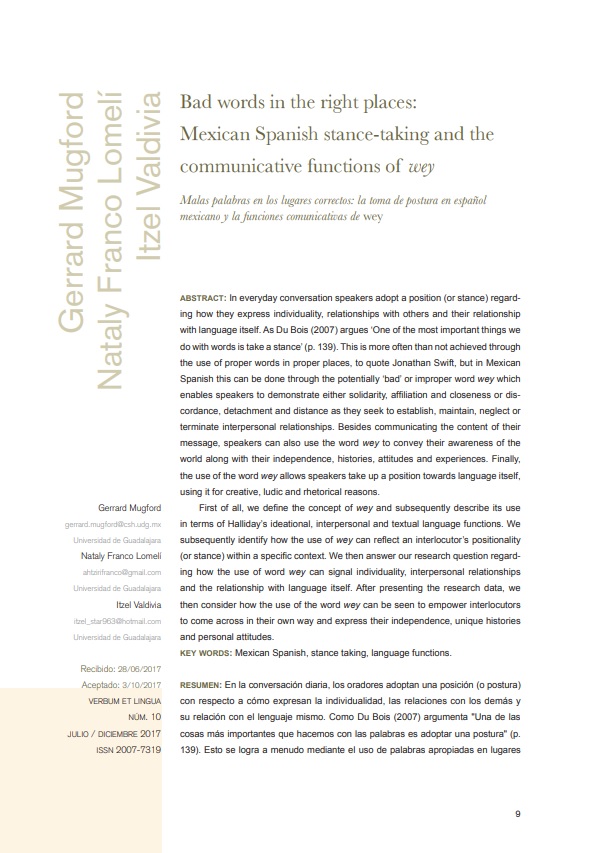Bad words in the right places: Mexican Spanish stance-taking and the communicative functions of wey
DOI:
https://doi.org/10.32870/vel.vi10.92Schlagworte:
Mexicano, toma de postura, funciones del lenguaje.Abstract
En la conversación diaria, los oradores adoptan una posición (o postura) con respecto a cómo expresan la individualidad, las relaciones con los demás y su relación con el lenguaje mismo. Como Du Bois (2007) argumenta "Una de las cosas más importantes que hacemos con las palabras es adoptar una postura" (p. 139). Esto se logra a menudo mediante el uso de palabras apropiadas en lugares apropiados, para citar a Jonathan Swift, pero en español mexicano esto se puede hacer a través de la palabra potencialmente "mala" o inapropiada wey que permite a los hablantes demostrar solidaridad, afiliación y cercanía o discordancia, desapego y distancia mientras buscan establecer, mantener, descuidar o terminar relaciones interpersonales. Además de comunicar el contenido de su mensaje, los hablantes también pueden usar la palabra wey para transmitir su conocimiento del mundo junto con su independencia, historias, actitudes y experiencias. Finalmente, el uso de la palabra wey permite a los hablantes tomar una posición hacia el lenguaje mismo, usándolo por razones creativas, lúdicas y retóricas.
En primer lugar, definimos el concepto de wey y posteriormente describimos su uso en términos de las funciones de lenguaje ideacional, interpersonal y textual de Halliday. Después identificamos cómo el uso de wey puede reflejar la posición (o posición) de un interlocutor dentro de un contexto específico. Luego respondemos a nuestra pregunta de investigación sobre cómo el uso de la palabra wey puede indicar la individualidad, las relaciones interpersonales y la relación con el lenguaje mismo. Después de presentar los datos de la investigación, consideramos cómo se puede ver el uso de la palabra wey para empoderar a los interlocutores para que se crucen a su manera y expresen su independencia, historias únicas y actitudes personales.
Downloads













